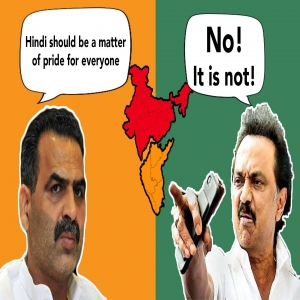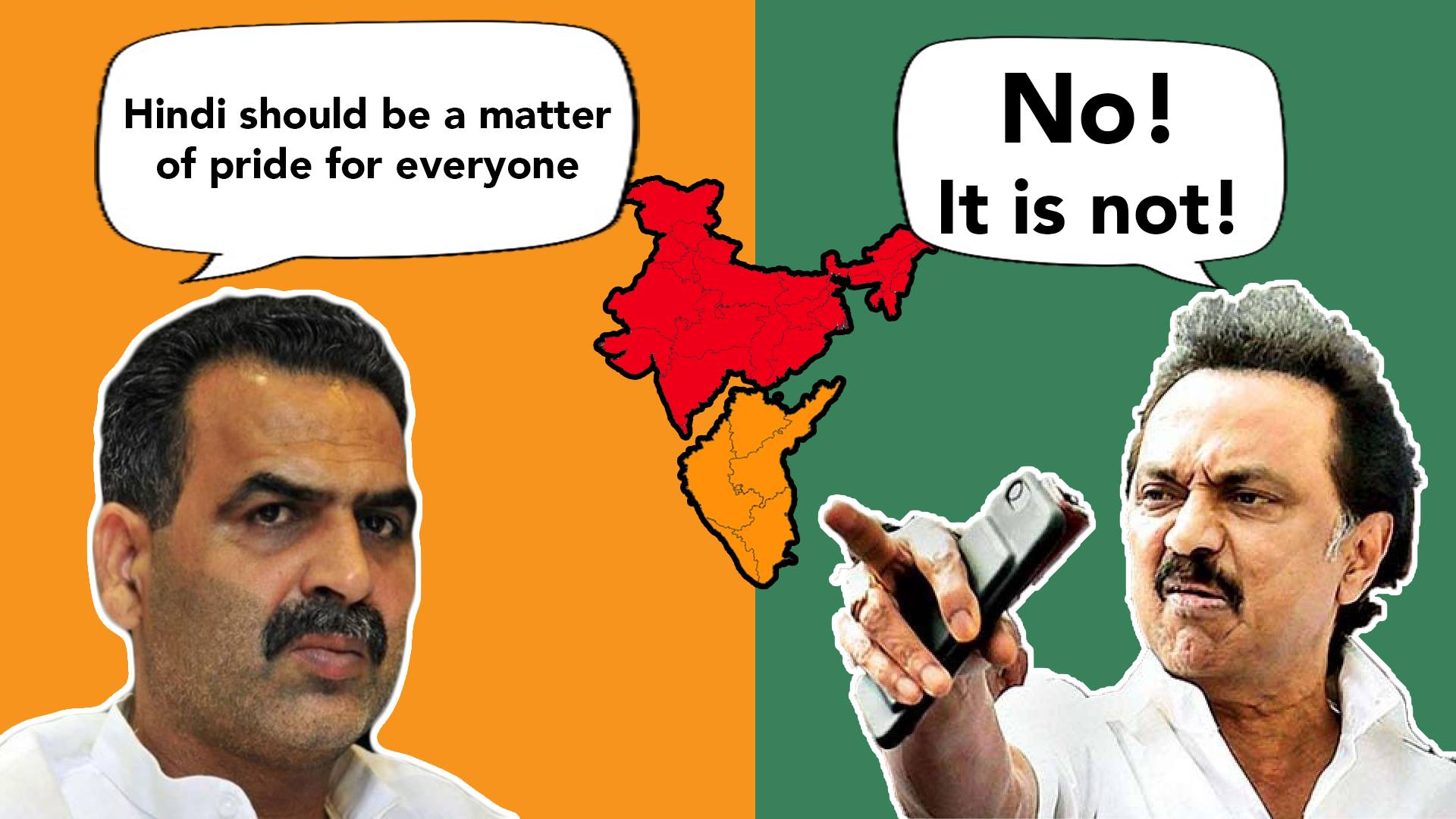
.jpg) Dr. John Singarayar
Dr. John Singarayar

Growing up at army quarters in India, I never really thought about how wild our language situation was. It was just... normal. I would hear Hindi from the TV, English at school, and, depending on where we were visiting family, anything from Bengali to Tamil at home. But it was only when I left India that I realised just how unique our linguistic landscape is.
A country where you can travel 100 miles and suddenly feel like you are in a different world. The food and clothes change, and yep, you guessed it - the language changes too. That is India for you.
Here is where it gets interesting (or complicated, depending on how you look at it). There is this ongoing debate about making Hindi the national language. It sounds straightforward, right? Well, not really!
Hindi is already one of our official languages, the other being English. But there has been this push to make it THE language of India. And boy! Has that stirred up a hornet's nest!
I remember visiting my cousin in Chennai a few years back. He told me about the protests that erupted when the government tried introducing Hindi in schools there. People were furious! "Why should we learn Hindi?" they argued. "We have our own language, our own culture."
And you know what? I get it. India is not just diverse; it is like diversity on steroids. We have 22 official languages, which is just scratching the surface. There are hundreds more languages and dialects spoken across the country.
This whole language debate is not new, though. It goes way back to when the British were ruling India. They pushed English as the language of power, and inadvertently, it became a unifying force for Indians fighting for independence.
Post-independence, our leaders had to figure out how to unite a country that was basically a linguistic jigsaw puzzle. Some pushed for Hindi, others for English, and others advocated for regional languages.
I have always found it fascinating how Gandhi Ji proposed Hindustani, a blend of Hindi and Urdu. It was like he was trying to create a linguistic peace treaty. But things did not quite pan out that way.
The north-south divide is one of the biggest challenges in this whole language debate. Hindi is predominantly spoken in the north, while southern states have their own languages with far richer literary traditions.
I remember a heated discussion at a family dinner once. My uncle from Delhi could not understand why "they" (referring to south Indians) could not just learn Hindi. My aunt from Bangalore fired back, asking why Hindi speakers felt their language was superior to others. It was not the most peaceful dinner we have had!
This debate is not just about language. It is about identity, culture, and, yes, politics, too.
When I was in college, I had friends from all over India. We had often joked about how we were like a mini-United Nations. But sometimes, the language issue would crop up, and things would get tense. Some felt that pushing Hindi was a way for the north to dominate culturally and politically. Others argued that a common language would make governance easier.
And then there is the economic angle. Whether we like it or not, English has become a global language of opportunity. I have seen friends and family members hustling to improve their English, seeing it as a ticket to better jobs and education.
So, what is the solution? Honestly, there is no easy one. But maybe that is okay. India's strength lies in its diversity and ability to accommodate multiple languages and cultures.
I think about my niece, who is growing up in Bangalore. She speaks Kannada at home, learns Hindi and English at school, and picks up bits of Telugu from her friends. To her, this multilingual environment is just... normal.
Perhaps that is the way forward. Instead of trying to force one language on everyone, why not embrace our linguistic diversity? Encourage people to learn multiple languages, celebrate our differences, and find unity in our diversity.
This language debate in India is not going away anytime soon. It is complex, emotional, and deeply tied to our sense of who we are as Indians.
But you know what? I am oddly optimistic. Every time this debate flares up, it forces us to have meaningful conversations about identity, unity, and what it means to be Indian. It is messy, sure, but it is also a testament to the vibrant democracy that India is.
So, the next time you hear about language protests in India or debates about Hindi imposition, remember: it is not just about words. It is about people, cultures, and the beautiful, complex history that is India.
And who knows? Maybe someday, we will find a way to turn our linguistic diversity from a challenge into our greatest strength. Until then, I will continue to marvel at how I can travel across my country and feel like I am exploring several nations, all rolled into one incredible India.